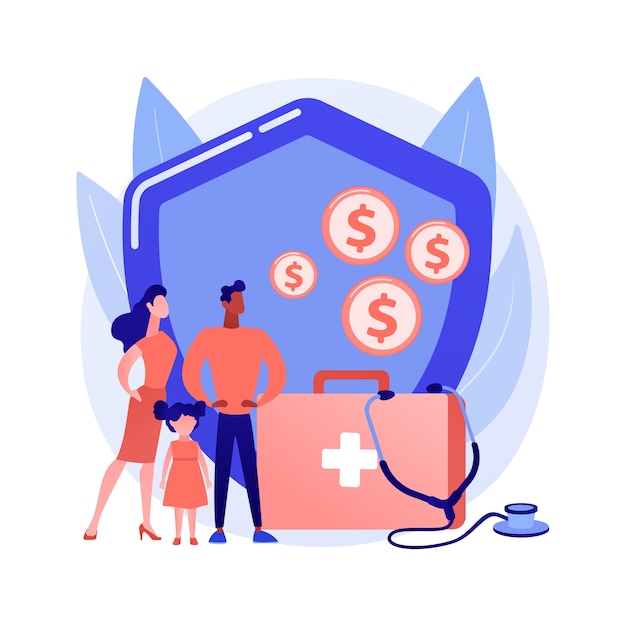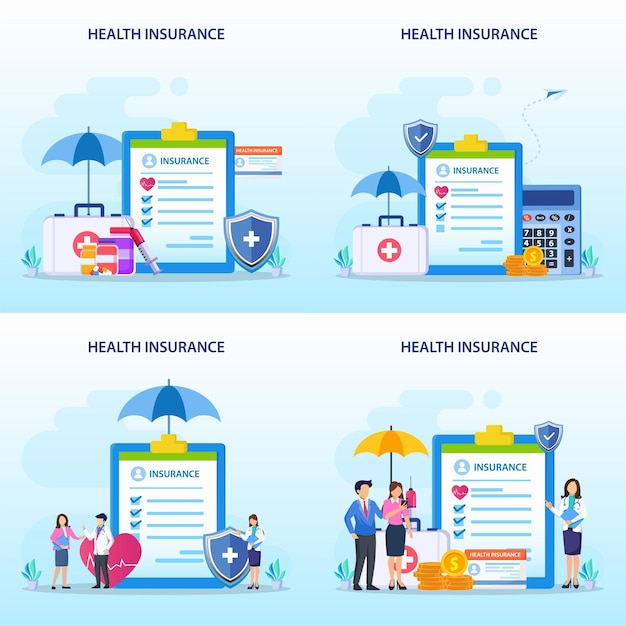
Health insurance is an essential expense that may not be part of everyone’s budget. While it is true that maintaining your health is invaluable, the high monthly insurance premium can be prohibitive for many people in the United States.
The Affordable Care Act offers subsidies for individuals whose income falls within certain guidelines, helping to offset the cost of their insurance. However, if you earn more than the defined limit, you might be faced with an enormous premium or deductible.
Previously, carrying health insurance was mandatory, but as of 2019 under the Trump administration, there is no tax penalty for not being insured.
If your employer doesn’t offer a satisfactory health coverage plan or if you’re self-employed, it might make you ponder if you can manage without health insurance. Though it isn’t ideal to abandon health insurance, it isn’t impossible. There are other healthcare solutions available without incurring sky-high costs.
It is worth noting that forgoing health insurance also comes with its risks. But if you are generally in good health, you might want to explore these healthcare alternatives.
PUTTING MONEY ASIDE FOR HEALTHCARE
When my husband held a traditional job, we utilized his employer’s health insurance plan. However, it was not comprehensive. We had monthly premiums and contributions to a Health Savings Account (HSA) to pay, alongside regular medical bills. As self-employed individuals, I decided to allocate money for medical expenses separately.
Our monthly premiums for health services, which we barely used, were bleeding our finances dry. So instead of loading up our premium, I decided to automate savings for potential medical costs such as doctors’ visits, dental care, and more.
We discovered that we could receive treatment from our regular family doctor as self-paying patients for a flat rate, which felt more manageable than an expensive monthly premium.
JOINING A HEALTH SHARING MINISTRY
Covering all of your medical expenses from your pocket can be strenuous. Thus, you might want to consider enrolling in a health sharing ministry. These ministries, predominantly Christian-based, are an attractive option for those without health insurance as they provide some coverage for significant health expenses, and their plans are usually more affordable.
Membership requires a consistent monthly payment, similar to an insurance premium. If you have no medical expenses, your payment goes towards another member’s health costs for that month. Moreover, you can submit your medical bills for compensation after satisfying your annual unshared amount.
Liberty HealthShare and Christian Healthcare Ministries are some of the leading examples of health sharing ministries. They will aid in handling significant medical costs such as surgeries and doctor’s bills, potentially saving you a chunk of money.
OPTING FOR URGENT CARE OVER ER
In the event of a medical urgency, consider heading to an urgent care clinic instead of an emergency room, where bills tend to soar. An urgent care visit is typically quicker and less crowded, saving you both time and money.
AVAILABLE PRESCRIPTION DISCOUNTS
Being uninsured can make prescription cost hefty, adding a substantial amount to your overall medical expenses. Companies such as Good RX offer free prescription discounts, allowing you to save on your medication without the need for insurance.
FINDING PROVIDERS WHO ACCEPT SELF-PAY PATIENTS
Find medical care providers who are open to self-pay patients. Some healthcare providers assume automatically that their patients have insurance, while others are more accommodating to self-pay patients.
NEGOTIATING YOUR MEDICAL BILLS
Don’t hesitate to negotiate your medical expenses. See if you can agree with a hospital on a reasonable payment plan or try to reduce the bill. Some hospitals even offer programs for patients struggling to pay their medical bills.
IT’S A RISKY MOVE
Getting by without health insurance is a risky venture. Insurance is there for protection. While it might seem unappealing to pay high premiums, it serves as a safety net when extensive care is needed.
Although some of my suggestions may work temporarily for a young and healthy family, they might not be viable long-term solutions. As we age, medical needs are likely to increase. Therefore, it’s important to review your healthcare options before making any decisions.
Foregoing health insurance should always be the last resort. But with self-payment and health share ministries, you can still give priority to your health.
In summary, it’s crucial to understand what you’re currently paying towards health insurance. Is it provided by your employer? Do you know your monthly outgoings?


